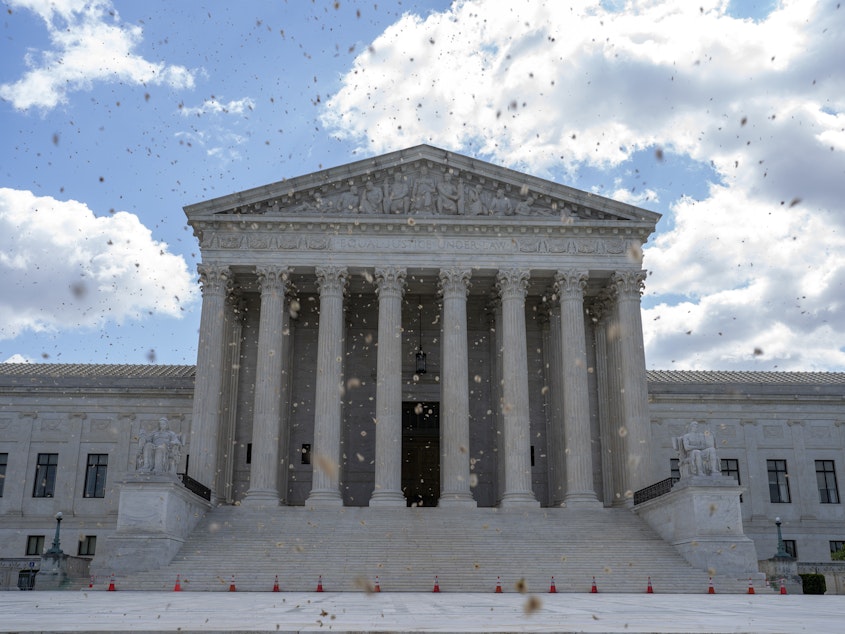Supreme Court Restricts Police Powers To Enter A Home Without A Warrant

The U.S. Supreme court ruled Wednesday that police cannot enter a home without a warrant when pursuing someone for a minor crime.
By a largely unanimous vote, the court declared that police violated the rights of a California man by pursuing him into his garage for allegedly playing loud music while driving down a deserted two-lane highway late at night.
Writing for the court majority, Justice Elena Kagan said that police had no right to enter the man's home without a warrant for such a trivial offense.
The court's ruling came in the case of Arthur Lange, who was playing loud music in his car late one night, at one point honking his horn several times. A California highway patrol officer, believing Lange was violating a noise ordinance, followed him and when the motorist slowed to enter his driveway, the cop put on his flashing lights.
Lange, who later said he didn't notice the police car at all, drove into his garage. The officer, in "hot pursuit," got out of his car and put his foot under the closing garage door sensor to force the door open again. He had no warrant to enter the home, but once inside, he said he smelled liquor on Lange's breath and arrested him, not only for the noise violation, but for driving under the influence.
Sponsored
Lange appealed all the way to the Supreme Court, contending that the officer had no right to enter his home without a warrant, and that the DUI evidence had been illegally obtained.
The Supreme Court has long held that police may conduct a warrantless search when pursuing a fleeing felon. The question in Lange's case was whether police are free to do the same thing when pursuing someone suspected of a minor offense like playing loud music. [Copyright 2021 NPR]



